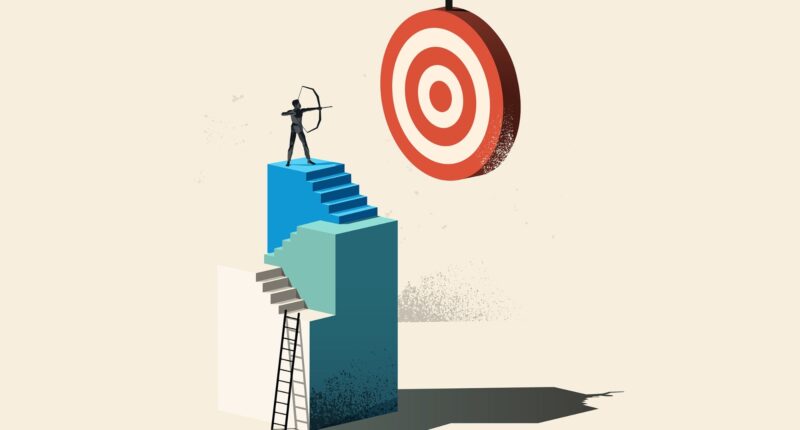
Opinions expressed by Entrepreneur contributors are their own.
You have heard horror stories. The ones where the big company makes outrageous demands of small suppliers, ruthlessly squeezes them for discounts and asks them to take on the risks of inventory without the guarantee of continued business. There is no doubt that all these things — and even worse — happen every day.
So why would a small business even want to consider doing business with big business? Why spend the considerable time and effort it takes to woo big customers and win a contract? Or take on the risk of ramping up to meet demand only to be pushed aside for a lower-cost supplier?
To me, the answer is simple. The potential pipeline of consistent business is worth the effort it takes to capture the big customer. I know because big businesses were my first and are still my very best customers. They are global giants and forward-thinking technology companies. They are well-known names and respected businesses like Siemens Industry, Inc., Cisco Technologies and Nestle Nutrition.
Through thirty-five years in business, I have learned how to navigate the complexities of purchasing systems, layers of management and sometimes confusing practices. And I am still learning to this day. If you are interested in doing business with big business, here are five things to consider before you start to court them.
1. Your business journey
If you are a start-up still working out the kinks of your operation or products, beware of going after a significant customer or contract. You only get one chance. Large customers expect you to have already systems to assure quality and delivery. Big businesses want to see a good track record and a solid operation.
Certifications like ISO or others can be attractive to some customers. And in my case, being a Certified Woman-Owned Business is helpful for customers who do business with the government or other entities that value a diverse supply chain. Onboarding a new supplier is a chore. Large companies don’t want to take a chance on a small supplier that is not ready.
2. Your unique skill or capability
Everyone thinks what they do is special or different. Be realistic. Can you do something the customer can’t or does not want to do in-house? Do you have a great, cost-effective niche product? Can you produce a better design? Can you provide value? You must be extremely specific about what differentiates your company from others.
In some cases, it might be how quickly you can accomplish a task or specialized knowledge. I had a customer who approached us with a project. They wanted to train their employees to sell a new product. This is a common request today, but I did not just quote the job per the RFP (Requests for Proposals). I showed how they could simultaneously create the training and a product piece for customers. They saved time and money. The ability to create and leverage communications is one of my special skills. I highlight this because I want customers to know I bring expertise to every project. There are no cookie-cutter solutions.
Related: 7 Ways To Achieving Your Retirement Goals With Comprehensive Planning
3. Ramp-up
Can you ramp up quickly? You may not be entirely ready for the big contract, but can you ramp up? In many cases, that means being able to hire additional people. I am always looking for good people to hire, even if we do not have an official opening. It takes time to get people up to speed. Be on the lookout if you are considering going after big customers. I also have lines of credit to finance new equipment. This is getting harder, so build financial relationships before you need them.
Related: How to Strategically Invest for Retirement at Every Age
4. Sustainability
Is your business sustainable, or are you the business? For years I had people tell me that I was the business. It was a problem I took seriously and addressed because I want the company to be resilient and grow. I now have plans in place, and most importantly, written down, if I get hit by a bus tomorrow.
Many small business owners do not document important information or create an exit plan. My attorney and accountant are ready to handle the finances if needed. My employees have critical contact lists, know our clients and can continue the work. If I disappeared tomorrow, the business would still be solid. That is not the case with many small businesses. If you are selling your expertise, you must have a backup plan should something happen to you or if key personnel leave the company. If you do not, then a large customer will not take a chance on you.
If you are a manufacturing business with intellectual property or a patent on a niche product, the large customer will consider the risk of whether access to your product or technology will continue to be available if something catastrophic happens. Large customers want to see a sustainability plan and specifics on business continuation.
Related: Raising Money For Your Ideas: Turning The Idea Into a Business
5. Flexibility
Are you flexible? That might seem odd, but when you work with large customers, you must adapt to their systems and preferences. A good example is how you submit a statement of work or invoices. You cannot use your template or system. You must learn their systems. And each one has its own, be prepared to spend time and resources to make it happen. As for payment terms and conditions, large customers dictate how quickly you get paid. If cash flow is an issue, it may not make sense to compete. Some large companies do have supplier financing programs. If you are willing to offer a discount, payment can be as fast as ten days.
My experience working with big companies has not been without some frustration, but I love my big customers. If you are prepared and find the right match, you will too.








